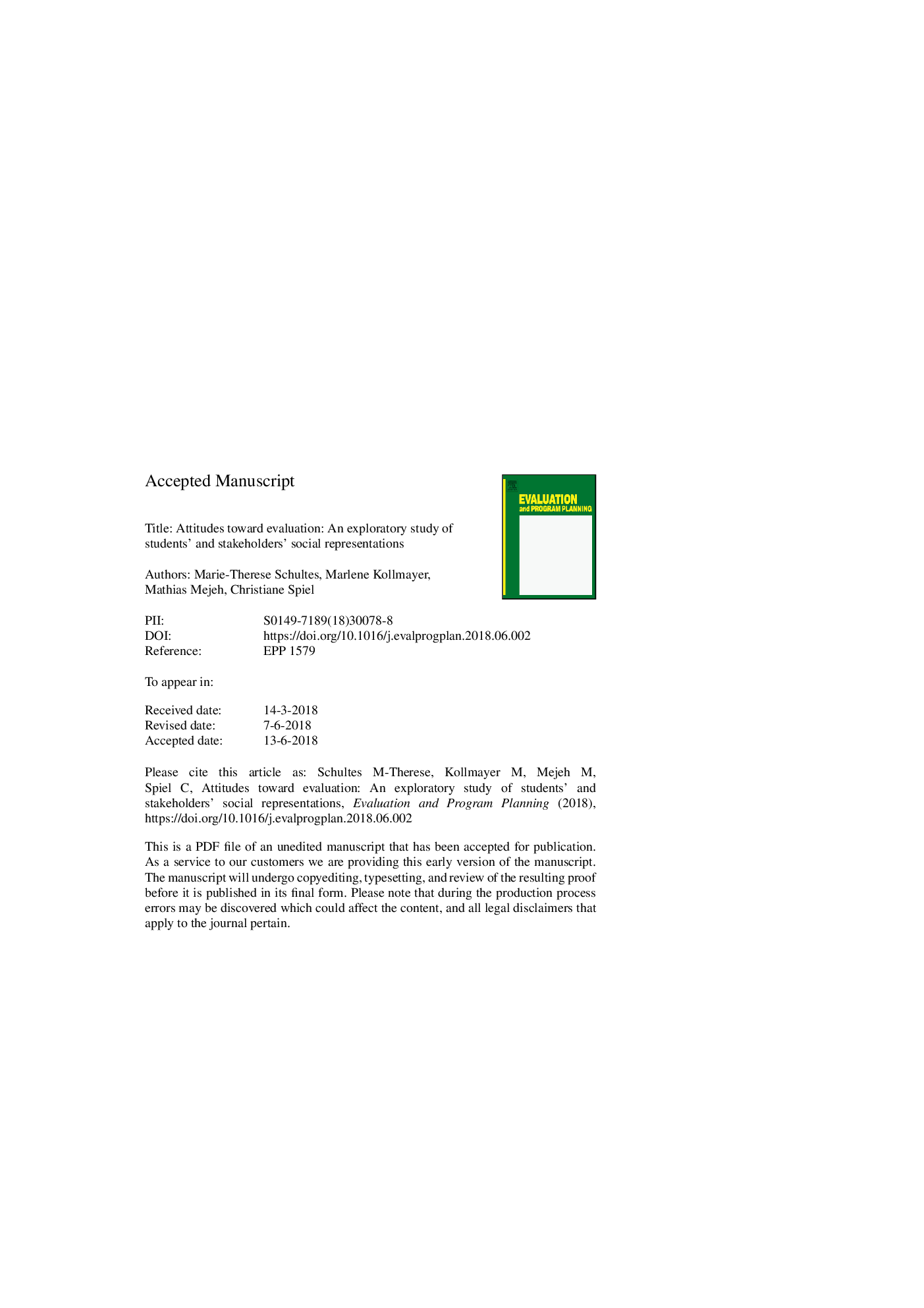| Article ID | Journal | Published Year | Pages | File Type |
|---|---|---|---|---|
| 6791928 | Evaluation and Program Planning | 2018 | 26 Pages |
Abstract
Positive attitudes toward evaluation among stakeholders are an important precondition for successful evaluation processes. However, empirical studies focusing on stakeholders' attitudes toward evaluation are scarce. The present paper explores the approach of assessing social representations as indicators of people's attitudes toward evaluation. In an exploratory study, two groups were surveyed: University students (nâ¯=â¯60) with rather theoretical knowledge of evaluation and stakeholders (nâ¯=â¯61) who had shortly before taken part in participatory evaluation studies. Both groups were asked to name their free associations with the term “evaluation”, which were subsequently analyzed lexicographically. The results indicate different social representations of evaluation in the two groups. The student group primarily saw evaluation as an “appraisal”, whereas the stakeholders emphasized the “improvement” resulting from evaluation. Implications for further evaluation research and practice are discussed.
Related Topics
Health Sciences
Medicine and Dentistry
Public Health and Health Policy
Authors
Marie-Therese Schultes, Marlene Kollmayer, Mathias Mejeh, Christiane Spiel,
